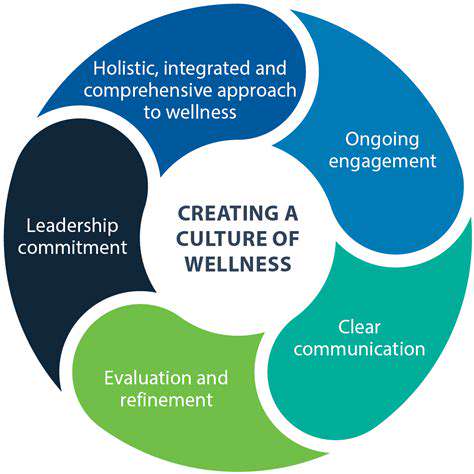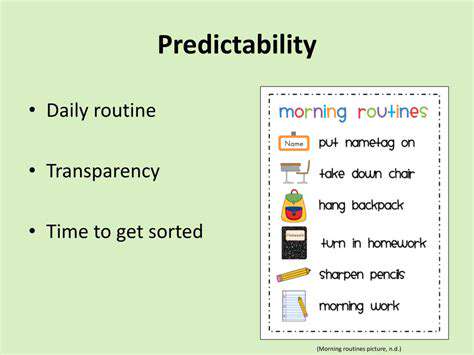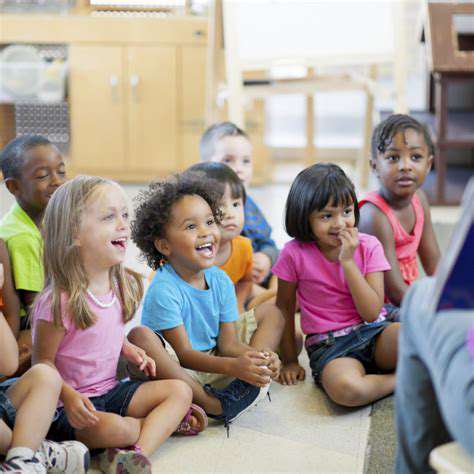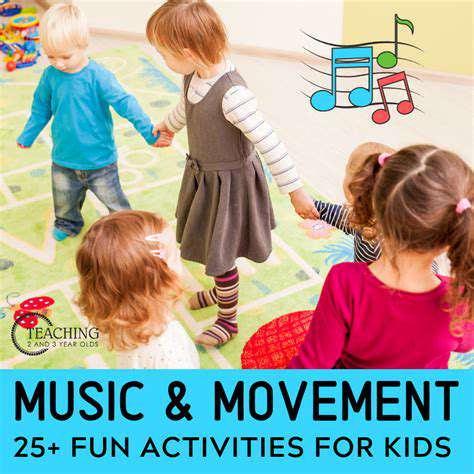Fostering Independence in Children: Essential Strategies for Parents
The Importance of Fostering Independence
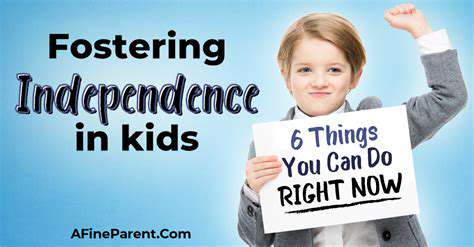
The Benefits of Encouraging Independence
Fostering independence in children is crucial for their overall development. When children learn to be independent, they are better equipped to handle challenges and make decisions on their own.
Independence promotes self-esteem and confidence. Children who believe in their ability to solve problems and make choices are more likely to succeed in various aspects of life.
Additionally, encouraging independence helps children develop critical thinking skills. By allowing them to explore their environment and make mistakes, parents enable them to learn and grow.
It also cultivates responsibility, as independent children often understand the consequences of their actions. This sense of accountability prepares them for adult life.
Finally, fostering independence can strengthen the parent-child relationship. When parents provide opportunities for autonomy, it shows trust, which can enhance communication and mutual respect.
Practical Strategies for Parents
Parents can implement several strategies to promote independence in their children. One effective approach is to assign age-appropriate chores that encourage responsibility.
Another strategy is to allow children to make choices about their daily routines, such as selecting their clothes or planning their snacks. These small decisions can empower them and build their confidence.
Encouraging problem-solving is also essential. Instead of immediately stepping in to help with difficulties, parents can ask guiding questions that stimulate critical thinking and self-reliance.
Outdoor activities can further foster independence by allowing children to navigate and explore their surroundings in a safe environment. This exploration can lead to self-discovery and a better understanding of their capabilities.
Lastly, praising effort rather than just outcomes reinforces a growth mindset. When children know that their efforts are valued, they’ll be more willing to take on new challenges.
Strategies for Encouraging Independence

Setting Clear Expectations
To foster independence in children, it's crucial to set clear expectations about responsibilities and behaviors. By establishing specific rules and guidelines, children understand what is expected of them. This clarity helps them make informed choices and encourages self-discipline. Parents should regularly communicate these expectations to ensure consistency. Over time, children will learn to navigate their responsibilities independently.
Involving children in the creation of these expectations can enhance their commitment. When they contribute, they feel a sense of ownership, which fosters intrinsic motivation. Moreover, this collaboration teaches them valuable negotiation skills. Parents should encourage discussions about these expectations, allowing for adjustments as children grow and change. Flexibility is key in adapting expectations based on individual maturity levels.
It's also essential to reinforce positive behaviors when children meet expectations. Acknowledgment and praise boost their confidence, making them more likely to repeat those behaviors. Constructive feedback can help guide them when they do not meet the standards set. This balance of guidance and encouragement creates an environment conducive to growth and independence.
As children begin to take responsibility for their actions, parents should step back gradually. This gradual release of control allows children to learn from both successes and failures. It's vital for parents to remember that mistakes are part of the learning process. By doing so, they prepare their children for future challenges in life with resilience.
Finally, parents should always model independent behavior themselves. Children learn by observing their parents, so demonstrating how to manage tasks can be incredibly effective. By exemplifying how to face challenges independently, parents instill the values of resilience and problem-solving.
Encouraging Problem-Solving Skills
As children grow, fostering their problem-solving skills becomes vital for independence. Parents can encourage this by allowing children to face challenges without immediate intervention. This helps children develop confidence in their ability to find solutions. Asking open-ended questions can also stimulate critical thinking, leading them to consider multiple viewpoints. Providing guidance without providing full answers can empower children to think creatively.
Involving children in everyday decision-making processes teaches them about the consequences of their choices. Allowing them to weigh options and come to conclusions creates a sense of agency. It's important for parents to create a supportive environment where children feel safe to express their ideas. This space can lead to innovative solutions and increased independence.
Additionally, teaching children to break down complex problems into smaller, manageable steps is essential. This technique not only simplifies challenges but also builds their organizational skills. Introducing them to relevant resources, like websites or books, can help them explore solutions independently. Parents should celebrate innovative ideas, reinforcing the idea that all contributions are valuable.
Through engaging activities, such as puzzles or collaborative games, children can refine their problem-solving skills in a fun way. These experiences can significantly enhance their ability to navigate life's difficulties. Ensuring that children engage with their peers in group settings also fosters teamwork and collective problem solving. This shared experience can strengthen their confidence even further.
Ultimately, encouraging a mindset focused on solutions rather than obstacles is essential. By teaching children to approach challenges proactively, they develop resilience and independence. Setting this foundation early prepares them for a lifetime of challenges ahead.
Building Self-Confidence through Independence
A child's self-confidence is closely tied to their ability to perform tasks independently. When children accomplish tasks on their own, they feel a sense of pride. This pride reinforces their belief in their capabilities. Encouraging small tasks at first can lead to larger achievements. Simple chores or responsibilities can help establish a strong base of self-reliance.
Parents should acknowledge their children's efforts, even in small accomplishments, as this affirmation is critical. Positive reinforcement motivates children to take on new challenges confidently. Celebrating their successes, no matter how minor, instills a sense of accomplishment. This practice also teaches them the importance of perseverance and effort in achieving their goals.
Encouraging children to pursue their interests or hobbies independently can significantly enhance self-confidence. When they engage in activities they are passionate about, they can explore their talents alone. This exploration fosters a sense of identity and belonging. Parents should provide resources and support without taking over, allowing the child to navigate their interests.
Creating opportunities for social interactions is equally important for building independence and confidence. Participating in team sports or group activities can help children learn to work collaboratively with others. It also offers a chance for them to practice making decisions relative to group dynamics. Such skills are invaluable as they prepare for more complex social settings.
Ultimately, fostering an environment where children are encouraged to take risks and embrace challenges builds a confident mindset. By facing obstacles independently, children learn to trust their judgment. This trust is foundational for lifelong resilience and success, as it enables them to approach future challenges with assurance.
Encouraging Independence in Diverse Contexts

Understanding the Importance of Independence
Independence is a crucial skill that enables children to develop confidence and self-efficacy. When children learn to make their own choices, they cultivate problem-solving skills that serve them throughout life.
By encouraging independence, parents help their children become adaptable and resilient. These qualities are essential for overcoming challenges and navigating complex social interactions as they grow.
Creating a Supportive Environment
A supportive home environment is pivotal for fostering independence. Parenting styles that promote trust and autonomy encourage children to explore and take risks.
Setting up a structured yet flexible environment allows children the freedom to express themselves while still providing necessary boundaries. This balance fosters a sense of security, which is vital for independent growth.
Age-Appropriate Responsibilities
Assigning age-appropriate responsibilities is an effective way to enhance independence. For instance, young children can assist with simple tasks like setting the table, while older kids can manage their own homework or chores.
These responsibilities should gradually increase in complexity as children mature. This approach teaches them accountability and the value of contributing to family life.
Encouraging Decision-Making Skills
Allowing children to make decisions cultivates critical thinking. Instead of directing every action, parents can present choices that encourage children to weigh options and consider consequences.
For example, letting a child select their outfit or choose a snack empowers them while developing their decision-making skills. This practice teaches them to trust their instincts and boosts their confidence in their judgment.
Providing Constructive Feedback
Constructive feedback is essential for refining skills and enhancing independence. Parents should focus on guiding their children through mistakes rather than criticizing them.
Praise efforts and provide insights that encourage growth. Acknowledging their progress can motivate children to keep trying and fosters a growth mindset towards learning new skills.
